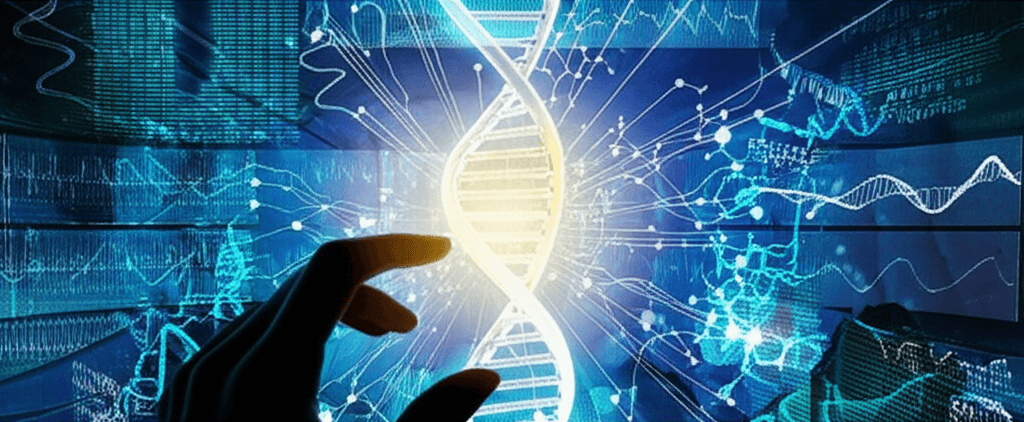ChatGPT Solves Decade-Long Medical Mystery Doctors Missed for Years
From frustration to breakthrough: A patient's decade-long medical riddle unravelled by AI, signaling a new era for diagnosis.
July 6, 2025

In a striking illustration of artificial intelligence's growing role in complex problem-solving, a patient has reportedly identified the source of a decade-long medical ordeal with the help of ChatGPT. After years of inconclusive tests and specialist consultations, the large language model pointed towards a genetic mutation known as MTHFR, a diagnosis that had eluded human doctors. The case, detailed in a widely circulated Reddit post, highlights the potential for AI to synthesize vast amounts of medical data and uncover patterns that may be missed by conventional diagnostic processes. For more than ten years, the individual, posting under the username @Adventurous-Gold6935, navigated a frustrating labyrinth of medical examinations, including spinal MRIs, CT scans, and extensive blood work, without a definitive answer to their persistent and unexplained symptoms.[1][2][3] Consultations with multiple specialists, including neurologists at a top-tier U.S. hospital network, failed to yield a diagnosis.[1][3] In a moment of desperation, the patient inputted their entire medical history, including lab results and a detailed description of symptoms, into the AI chatbot.[1][4][2]
The turning point came when ChatGPT analyzed the comprehensive data and proposed a potential link to a specific genetic variant: the homozygous A1298C MTHFR mutation.[1][2][3] The AI's crucial insight was that even with normal vitamin B12 levels showing in blood tests, this particular mutation could impair the body's ability to properly process and utilize the vitamin at a cellular level.[4][5][3] This suggestion proved to be the "lightbulb moment" for the patient.[1] When presented with this AI-generated hypothesis, the patient's doctor was reportedly "super shocked" but agreed that the analysis was plausible.[1][5] Subsequent treatment with targeted supplements led to a significant improvement in the patient's condition, with most symptoms reportedly resolving within months.[1][4][5] The user’s Reddit post has since spurred a broader conversation, with thousands of reactions and similar stories of AI-assisted diagnoses emerging.[4][2]
The MTHFR gene, an acronym for methylenetetrahydrofolate reductase, provides the body with instructions for making an essential enzyme of the same name.[6] This enzyme plays a critical role in processing amino acids, the building blocks of proteins, and is particularly important for converting folate (vitamin B9) into its active form, methyl-folate, which is necessary for creating DNA.[7][6] The MTHFR enzyme is also involved in breaking down homocysteine, an amino acid.[7][6] When the MTHFR gene is mutated, this process can be less efficient, potentially leading to elevated levels of homocysteine in the blood, a condition called hyperhomocysteinemia.[8][7] High homocysteine levels can damage blood vessels and may increase the risk for various health issues, including blood clots, cardiovascular disease, and certain birth abnormalities.[8][7] There are two common MTHFR gene variants, C677T and A1298C, and it is estimated that these mutations are relatively common, affecting a significant portion of the population.[7][9] However, most people with an MTHFR mutation experience no symptoms, and the presence of a variant does not guarantee health problems.[8][6] Symptoms and associated conditions can vary widely depending on the specific mutation and whether an individual has one (heterozygous) or two (homozygous) copies of the mutated gene.[7]
The implications of this case extend far beyond a single patient's journey, casting a spotlight on both the promise and the complexities of integrating AI into healthcare. AI's ability to process and analyze massive datasets, including the entire corpus of medical literature, allows it to identify cross-disciplinary patterns that might fall outside the purview of a single human specialist.[5][10] This is particularly relevant for conditions like MTHFR mutations, which involve connecting genetic predispositions with nutrient metabolism.[5] In a healthcare system often characterized by time pressure and specialization, AI can offer a holistic view, synthesizing disparate pieces of information from a patient's history that individual doctors might not connect.[4][11] This story is not an isolated incident; other reports have emerged of ChatGPT suggesting diagnoses for rare conditions like tethered cord syndrome and hereditary angioedema after years of misdiagnoses.[12][13][4][5] These successes point to a future where AI could serve as a powerful diagnostic aid for medical professionals, helping to reduce errors and accelerate the time to accurate diagnosis.[14][15][16]
Despite these successes, the use of AI for medical diagnosis is not without significant risks and ethical considerations. Experts caution that AI models like ChatGPT are not infallible and can generate inaccurate information, a phenomenon sometimes called "hallucination."[17] Relying solely on AI for medical advice can be dangerous.[18] There are also major concerns regarding data privacy, as sharing sensitive health information with AI systems poses security risks.[18][16] Algorithmic bias is another critical issue; if the data used to train AI systems is not representative of diverse populations, it can lead to inaccurate outcomes and perpetuate health inequities.[18][14] Furthermore, there is a lack of accountability when an AI provides a faulty diagnosis.[14] While AI holds the potential to make healthcare more efficient and personalized, it is crucial to view these tools as assistants to, not replacements for, qualified medical professionals. The patient in the MTHFR case exemplified responsible use by taking the AI's suggestion back to their doctor for verification before beginning any treatment, a crucial step in safely navigating this new technological frontier.[5] The integration of AI into medicine will require robust regulatory frameworks and a continued emphasis on the irreplaceable value of human clinical judgment.
Sources
[1]
[3]
[5]
[8]
[9]
[10]
[11]
[14]
[15]
[17]